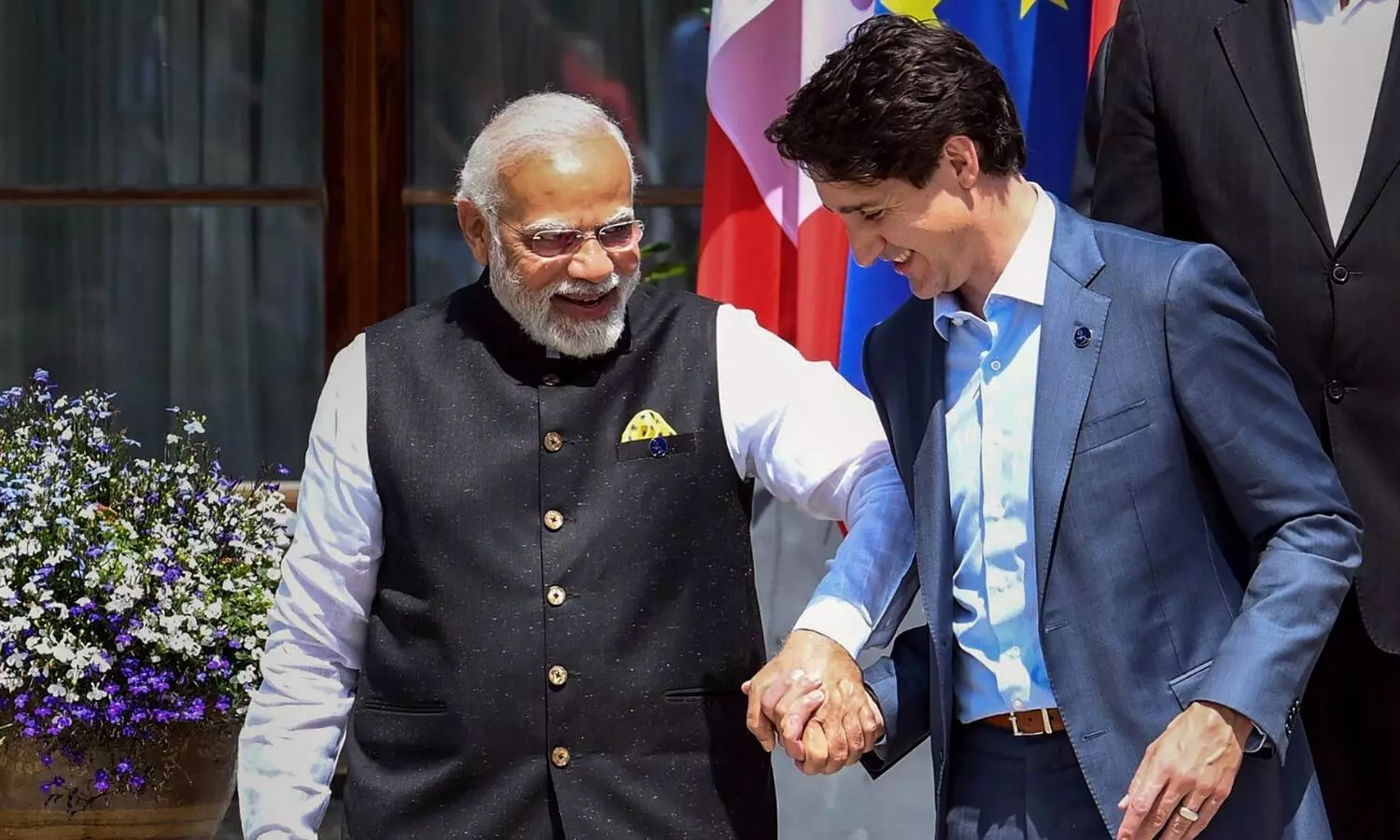Nijjar killing and Bishnoi gang allegations deepen ongoing rift in India-Canada relations

New Delhi: The diplomatic rift between India and Canada deepened this week following serious allegations from Canadian federal police that purported "agents" of the Indian government are colluding with organized crime, including the Bishnoi gang, to target the South Asian community, particularly those with pro-Khalistani views. This claim comes in the wake of the murder of former Maharashtra minister Baba Siddique. The escalation began with both countries expelling six diplomats each, which included notable figures such as Canada’s acting High Commissioner Stewart Wheeler and India’s High Commissioner Sanjay Verma. In its response, India cited security concerns as the primary reason for withdrawing its staff. India strongly rejected the claims from Canada, branding them as "preposterous" and accusing Prime Minister Justin Trudeau’s government of pursuing a political agenda ahead of upcoming elections. Officials asserted that the notion of India's expelled diplomats being linked to extortion and murder was baseless. During a press conference, Trudeau reiterated his support for the allegations made by law enforcement, stating that it was unacceptable for India to engage in criminal activities on Canadian soil. He mentioned that his government had previously expressed its concerns to India but was met with indifference.
This dispute marks a significant turning point in the already tense relations between the two nations, which began to deteriorate last September when Trudeau accused the Indian government of being involved in the assassination of Khalistani terrorist Hardeep Singh Nijjar, who was killed outside a gurdwara in Vancouver three months prior. Nijjar was considered a key figure in the Khalistani Tiger Force, which India has classified as a terrorist organization. He was on India’s most wanted list, with a reward of Rs 10 lakh announced by the National Investigation Agency (NIA) for information leading to his arrest in connection with a murder case involving a Hindu priest in Punjab. In response to Canada’s allegations, India has consistently denied any wrongdoing, characterizing the claims as "absurd" and lacking evidence. This latest incident has added to the strain that has been evident since July 2023, when India issued a demarche demanding action against Khalistani separatists threatening Indian diplomats, and noted security breaches at its consulates in both the United States and Canada. The Indian government has voiced grave concerns over the actions of extremist elements operating in Canada and stressed the importance of addressing the criminal nexus associated with these groups. The tensions between the two countries were further fueled by an Indian police operation aimed at apprehending Khalistani separatist Amritpal Singh and over 100 members of his organization, the 'Waris Punjab De.' India has also sought to halt a Khalistan referendum being promoted by Gurpatwant Pannun’s Sikhs for Justice, another group designated as a terrorist organization. Recently, trade negotiations between India and Canada were suspended just days before Canada made its accusations. Canadian Trade Minister Mary Ng announced that talks would remain on hold while the government investigates these serious claims, although she did not confirm any direct link between the paused negotiations and the murder of Nijjar.
The trade discussions have been ongoing since 2010, and their halt coincided with Trudeau’s visit to India for the G20 summit, which included several awkward incidents, such as issues with his flight. During the G20 summit, Modi expressed concerns over the presence of "anti-India" activities occurring in Canada, while Trudeau reaffirmed Canada's commitment to upholding freedoms while emphasizing the need to counter violence and hatred. The diplomatic row intensified in June when the Canadian Parliament observed a moment of silence in memory of Nijjar on the anniversary of his death. This act provoked a strong reaction from India, which criticized any attempt to provide political legitimacy to extremist ideologies and violence. In a related statement, the Indian consulate in Vancouver honored the 329 victims of the Air India flight bombing carried out by Khalistani terrorists in 1985, highlighting ongoing extremist sentiments among certain groups in Canada. Indian-origin MP Chandra Arya remarked that the ideology responsible for such violence still persists among a minority in the country. Meanwhile, the United States has expressed deep concern over the allegations made by Canada. After Pannun filed a civil lawsuit alleging a plot against him, the U.S. called on India to take these claims seriously and conduct an investigation. In response, the Indian government has established a high-level committee to look into the accusations thoroughly.



